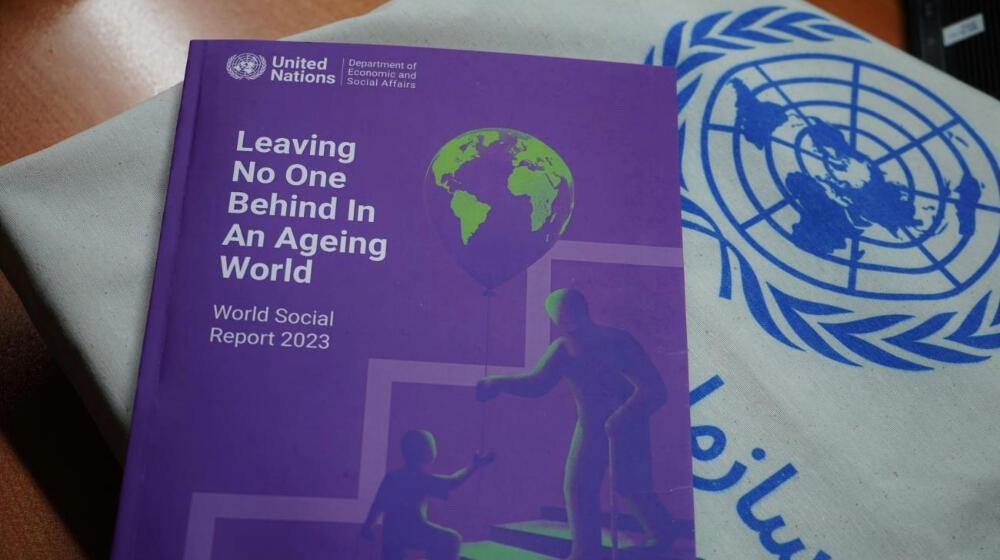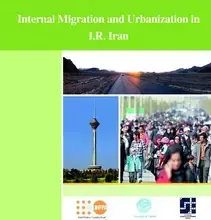Conclusions of UN-Iran’s UNSDCF Knowledge Roundtable
Is the world population growing older rapidly? What are the social and economic consequences of this trend? What should governments and we as citizens do to prepare in the face of ageing societies? These were the questions discussed in a roundtable organized by UN-Iran in May 2023. The “Knowledge Roundtable” brought Iran’s leading demographers and gerontologists together with UN experts to discuss the 2023 World Social Report’s conclusions.
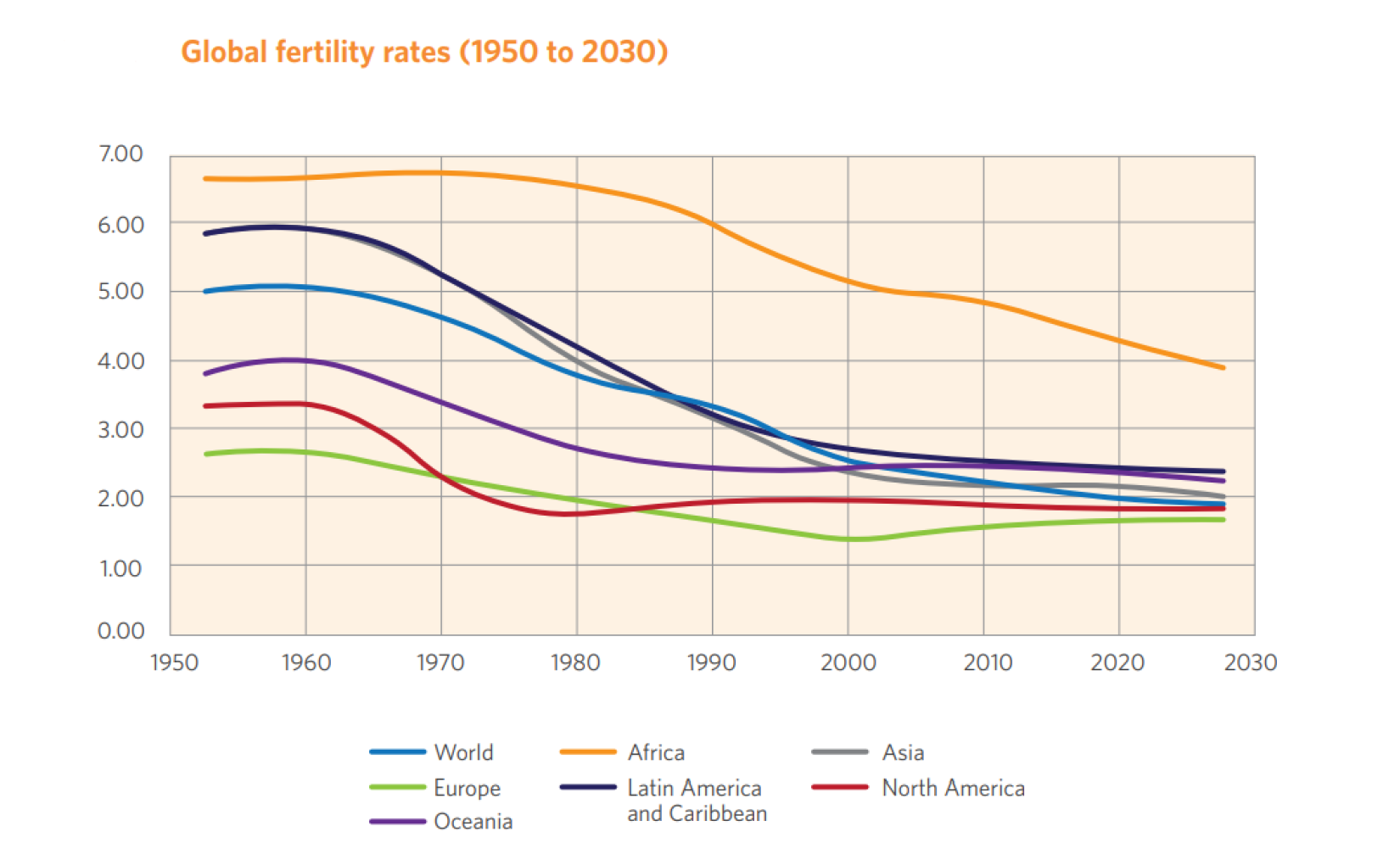
The 2023 World Social Report finds Population ageing to be a defining global trend of our time. People are living longer, and more are older than ever before. Spectacular improvements in health and survival and reductions in fertility have driven this momentous shift, which has begun in all countries and areas. As a result of our collective success in living conditions for billions of people around the world, the number of individuals aged 65 and older will increase from 761 million in 2021 to 1.6 billion in 2050, representing one-seventh of the population in 2050. The number of individuals aged 80 and older will increase from 155 million in 2021 to 459 million in 2050.
On the one hand, we need to celebrate the fact that our societies are healthier, and we now live longer than our ancestors. In the short-term, the shift in age structure of a population can contribute between 1 and 2.5 percent to annual per capita GDP growth as the number of working age group increases significantly. On the other hand, from a long-term perspective, we need to think of how to care well for this growing population of older people. In 2015, it was estimated that “lifecycle deficit”, or unmet resource requirements of all older people worldwide, amounted to 11.5% of total labor income. In other words, across the world, people are earning only 88.5 percent of what they need to lead a life of dignity in their old age. There is concern that the “life-cycle deficit” will rise in the coming years.
High out-of-pocket costs for long-term care are likely to push older people into poverty and destitution. Also, extended lives are not always associated with better health, particularly for women. The social and economic impact of ageing on each of us may be increasingly unequal in the future.
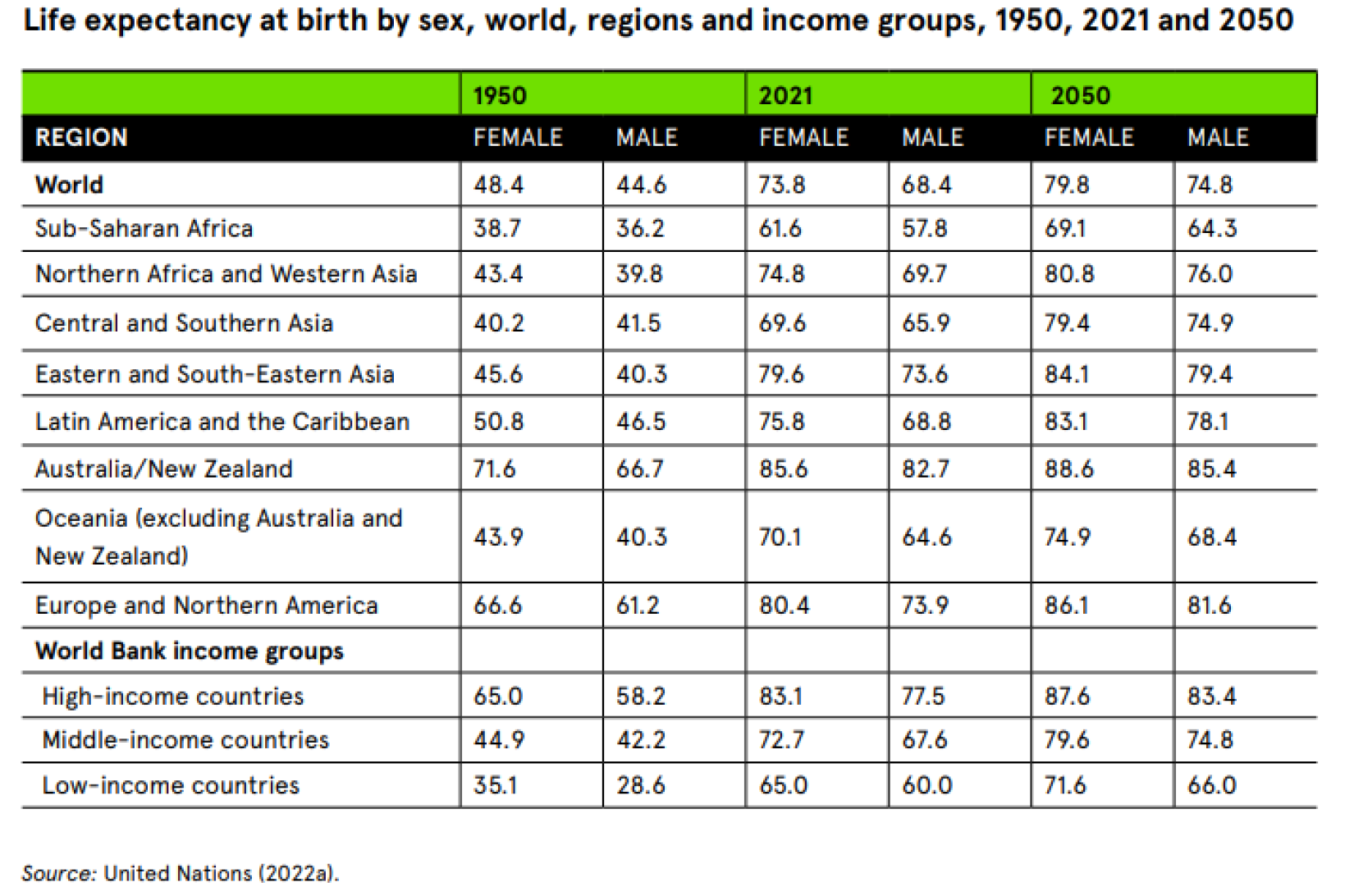
The World Social Report indicates that ageing of the world population is inevitable, irreversible and cautions that longevity does not inherently equate with prosperity. The objective of policy formulation should hence be to simultaneously increase longevity and welfare, to ensure independence and to promote social participation for older people. Ageing should be at the forefront of economic development initiatives, including ensuring that the broader economy benefits from the expertise and skills of senior individuals. While it is essential to encourage older individuals to continue working, they should also have the option to retire at a certain age with basic income security.
In concrete terms, a “Lifecycle approach” requires all nations to look at equal opportunities for all citizens, at every phase of their life, to avail healthcare and to have economic security. There is need for women to have control in planning birth of children and for them to have sound access to reproductive health care. Employment and social policies must enable women to have children while remaining in the labor force and advancing in their careers.
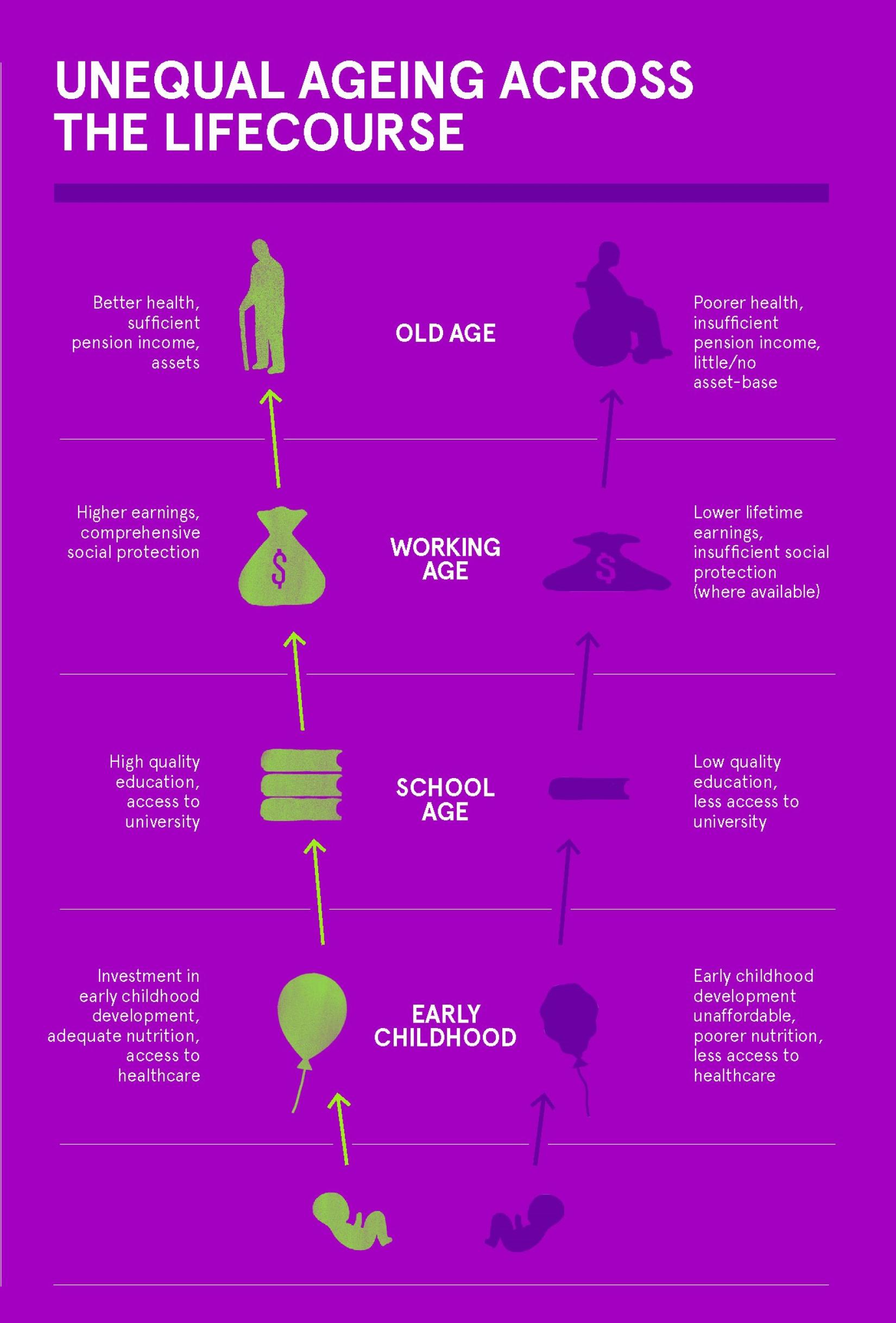
Given an ageing world, experts highlighted the need to formalize care work. Today, one in three older women and one in five older men require some level of care, highlighting the significance of the issue. This care can include assistance with meals, housekeeping, bathing, and activities of daily living, care for those with a fractured hip, care for those with dementia, and end-of-life care. Vision problems, hearing issues, depression, and dementia are the four main diseases affecting older people. These diseases necessitate specific care planning.
From a macroeconomic standpoint, the effort of families that care for their elders is not calculated as part of national GDP estimates. Similarly, there is inadequate investment in many countries in care-giving professions such as nursing and palliative care. There is also a need to address the lack of enough care facilities for older people. The World Social Report as agreed by the experts highlights the need for “ageing in the right place”, in other words, on the need for older people to remain with their families, to ensure a life of dignity and fulfilment.
Iranian experts commended the report for highlighting a global demographic trend. They expressed that any follow-up to the World Social Report should address intergenerational equity. The age-re-allocation index (average age of consumption – average age of production) which is a reliable indicator of poverty among older people need to be highlighted.
They said that in many societies, being a single woman, being economically disadvantaged, being disabled or suffering from a chronic illness and residing alone, increases the vulnerability of an old person. Thus, there is need for global policymakers to consider “intersectionality and multidimensionality” in their decisions to address the ageing crisis.
The experts at the roundtable agreed that to address the social and economic impact of ageing, there is a need to promote healthy diet and exercise in childhood and adulthood, keep older people updated on new technologies, and greater role of the state in caring for older people that do not have family support in an era of migration and low fertility rates.
There was optimism that the economic situation of older people can improve in the future, and they can be less dependent on the younger population. To factor in the needs of an older workforce, labor markets need to embrace flexibility in working hours and work-from-home, lifelong learning and training, improved career opportunities, age-diverse team development for knowledge transfer, older workers supporting younger staff capacities, mobility possibilities, health and prevention programmes, flexible retirement options, and ensuring no age bias in recruitment and employee retention. New approaches to retirement are required, as mandatory retirement ages do not necessarily take into account developments in life expectancy or differing job requirements. It has been seen that in some countries where the retirement age is high, labor force participation rates of older workers are much higher and general productivity is also higher.
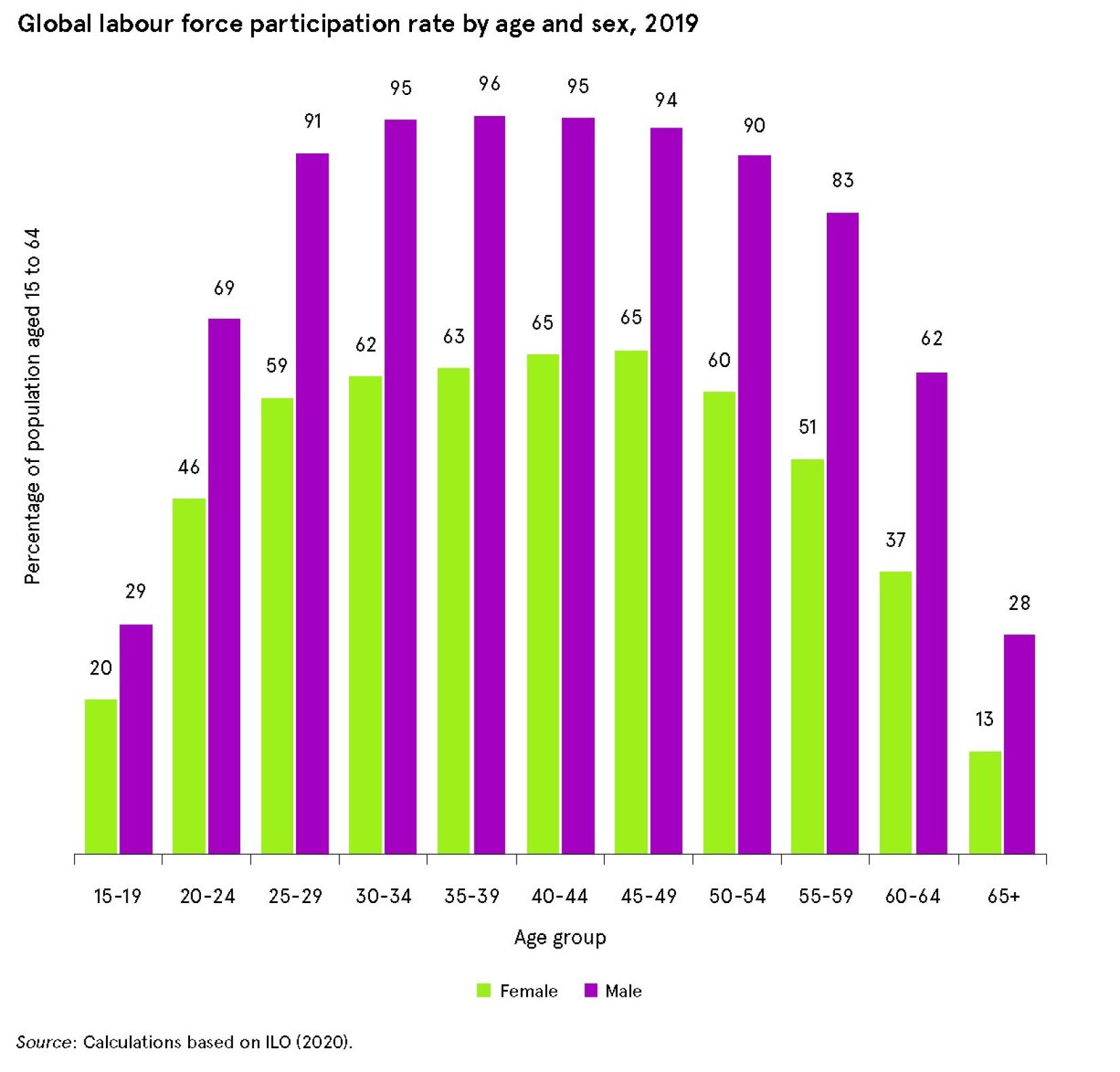
There is need for long-term approaches to universal healthcare and pension, and to identify the most nationally appropriate approaches to funding pension. The overall direction should be towards introducing or expanding tax-funded pension schemes that provide basic income security to all older people, including workers in informal employment, and on reducing or eliminating gaps in coverage.
In conclusion, it is important to accept that population ageing is inevitable and irreversible. But as the World Social Report says, healthy ageing equals good health + economic security + opportunities for older people. This requires policymakers to take a “lifecycle approach” to ageing and women and girls to be given special focus in the life cycle approach. Through fiscal sustainability of public pension systems, income security and healthcare for older people, nations can successfully address the challenges of an ageing world.

